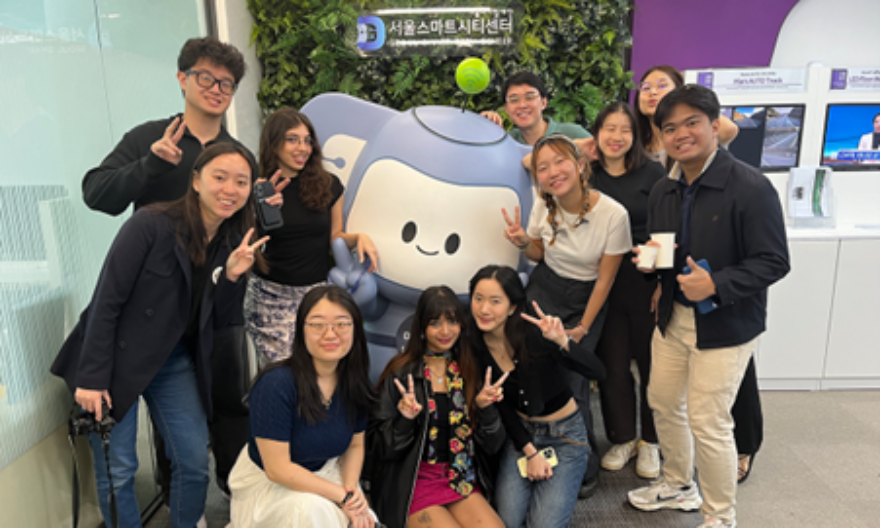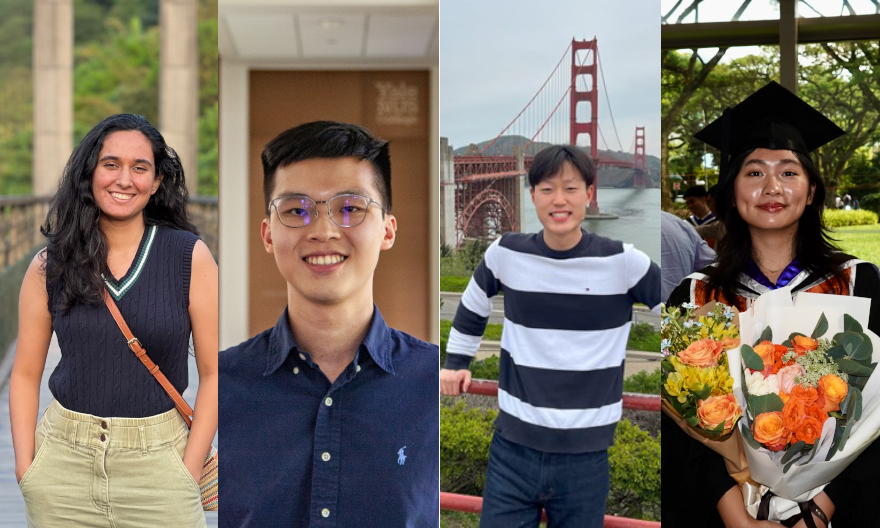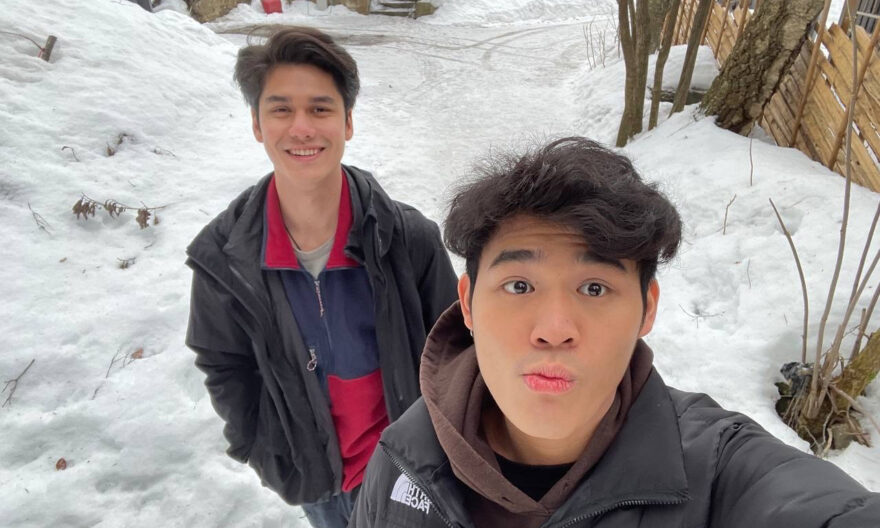Yale-NUS freshmen take on Week 7 LABs
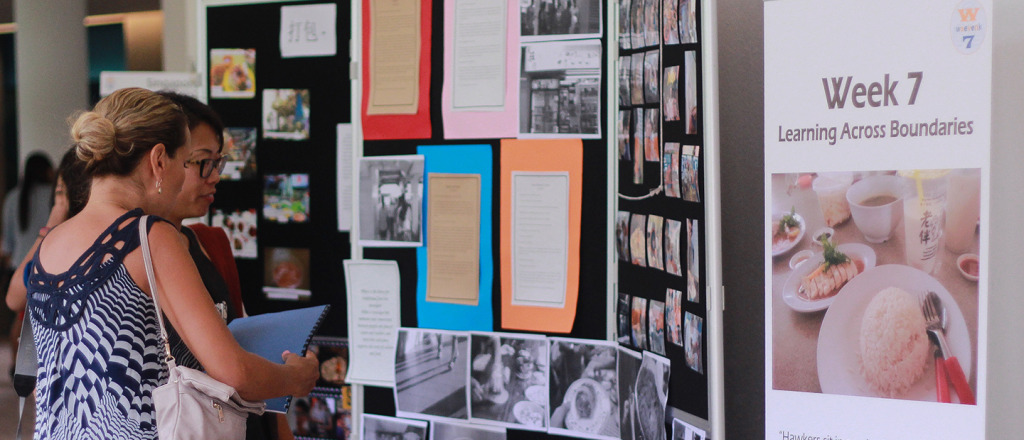
In one short week, Yale-NUS freshmen embarked on 10 projects around the world to learn about topics from food sustainability in Singapore, to art in London and tropical conservation in Thailand.
The projects were part of the College’s Week 7: Learning Across Boundaries (LABs) co-curricular program organised by the Centre for International and Professional Experience (CIPE), and aimed to bring real-world situations and issues alive for students by bringing them into each field of study – literally. Week 7 started as a faculty-generated initiative, and saw over 150 students and 23 faculty members participating in its inaugural year. This year, over 170 students and 21 faculty members took part in the ten projects.
By the end of the week, students returned to campus refreshed and buzzing with new revelations and ideas on the topics they had studied, while faculty members who participated were more than happy to have shared their knowledge.
Week 7 also aims to foster in students the habit of asking well-thought out questions in exploring different topics. Professor Mark Joyce, one of the faculty members who led London Art, shared that he was very pleased with the students’ level of critical thinking that emerged.
“The highlight [of the trip] was the look of amazement on the faces of leading figures of London’s art world as they fielded tough questions from our students,” he said, “and the melting away of any remaining cynicism about contemporary art amongst the students when they met artists in their studios and were exposed to the creative process.”
In Singapore Foodways, Associate Professor Mira Seo, along with Associate Dean of Students Kim Cheah, led 16 students to meet with hawker stall-owners and local food journalists, to explore the hawker centre as the most prominent local eating environment.
“Getting to know the people and stories behind the iconic hawker stalls became a passion for many of the students, and they were able to practise the documentary and photojournalistic techniques our partners shared with them early in the project,” Professor Seo said.
She added: “I was really impressed by how personally the students became invested in the future of hawker food, how critically they engaged with food ‘authorities’ from media to government, and how respectfully and knowledgeably they assessed the diversity of Peranakan recipes and flavors from Singapore to Penang.”
The end of Week 7 saw all 10 projects coming together for a symposium on 4 October 2014 to share their experiences and lessons learnt through posters, photography, and documentaries. Students who went on Roman Urban Life and Visual Culture gamely donned togas at their booth, while the London Art group mapped out their journey and the learning points from the journey.
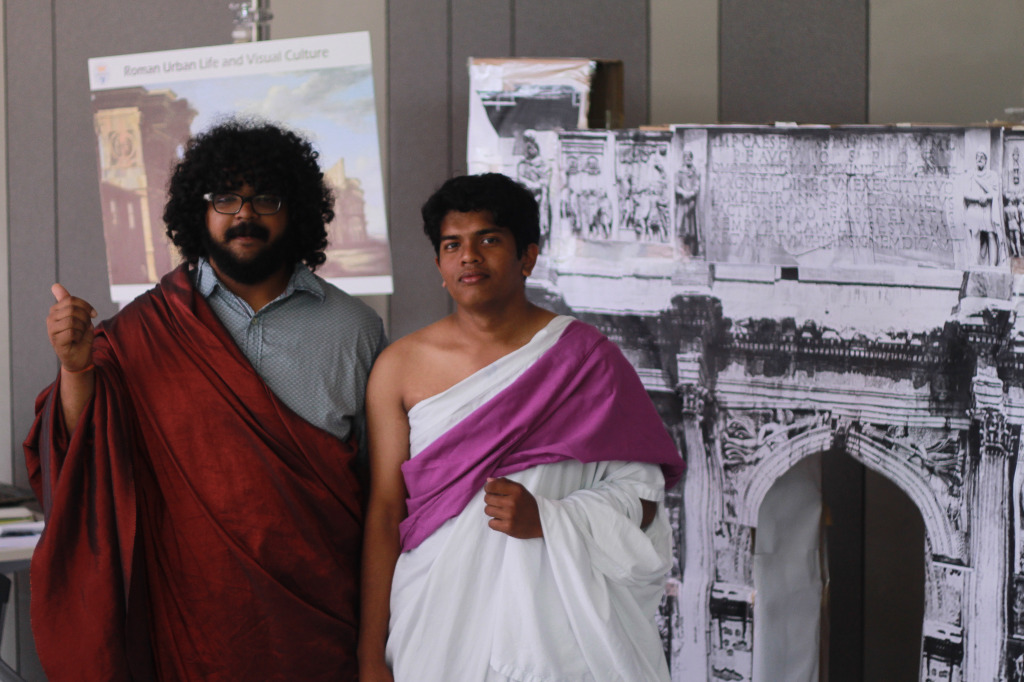
For students, Week 7 was an eye-opening experience into the world and topics covered on each project.
Feroz Khan (Class of 2018) found that Far Food Nation gave him new insight into the relationship between the local food production industry and government policies that he would otherwise not have considered.
“I feel that we learnt just as much about Singapore’s government as we did about food production, for which I am deeply grateful,” Feroz shared.
He added that the interdisciplinary nature of the project also tied in neatly with other modules he is taking. “It was rewarding to see ideas from [our Common Curriculum modules] Comparative Social Institutions and Philosophy and Political Thought – such as power, the role of government, and leadership – come together to illustrate the reasons why farmers had such strong opinions on our government’s policies and its decision-making calculus.”
Week 7 was the perfect opportunity to experience more of Singapore for Silvia Lara (Class of 2018).
“I was interested in this project because I read a book about Singaporean cuisine, mainly to discover where the best places were to eat. So I was hoping it would be instructional, and it definitely was!” the Italian student said of her experience during Singapore Foodways. “I am happy to have been assigned to this project because I wouldn’t have been able to step out and find my own way in this country as much as I did during Week 7.”
For Professor Brian G McAdoo, who led Far Food Nation and is also Rector at Yale-NUS, it would be interesting to see how lessons learnt during Week 7 could be incorporated into living and learning at the College.
“I can see all sorts of ways of incorporating edible gardens into our new campus – ideally working with one of the businesses we visited at Marina Bay Sands called, not surprisingly, Edible Garden City. Students are keen to look into how herbs and spices might be grown in the residential college skygardens. It would be interesting to see how an institution like Yale-NUS might be able to support local organic produce at a larger scale.,” he said.
To read more on the Week 7 LABs, head over to the Week 7 blog here.

